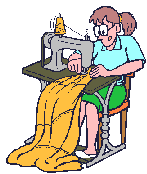Post by Deed on Oct 18, 2005 3:52:01 GMT 10
Denise, Karen and any one else......
Have any of you gone through or know someone who has gone through gene testing for cancer? Can you tell me all you know about it? Pros and Cons?
My oncologist wants me to do this. My sis Sandra already has and hers came back negative.
For those that don't know what I am talking about:
You can read more about it here: BreastCenter.com
Have any of you gone through or know someone who has gone through gene testing for cancer? Can you tell me all you know about it? Pros and Cons?
My oncologist wants me to do this. My sis Sandra already has and hers came back negative.
For those that don't know what I am talking about:
Is there a test for hereditary breast cancer?
Hereditary breast cancer is suspected when there is a strong family history of breast cancer: occurrences of the disease in at least three first or second-degree relatives (sisters, mothers, aunts). Currently the only tests available are DNA tests to determine whether an individual in such a high-risk family has a genetic mutation in the BRCA1 or BRCA2 genes.
When someone with a family history of breast cancer has been tested and found to have an altered BRCA1 or BRCA2 gene, the family is said to have a "known mutation." Positive test results only provide information about the risk of developing breast cancer. The test cannot tell a person whether or when cancer might develop. Many, but not all, women and some men who inherit an altered gene will develop breast cancer. Both men and women who inherit an altered gene, whether or not they develop cancer themselves, can pass the alteration on to their sons and daughters.
But even if the test is negative, the individual may still have a predisposition to hereditary breast cancer. Currently available technique can't identify all cancer-predisposing mutations in the BRCA1 and BRCA2 genes. Or, an individual may have inherited a mutation caused by other genes. And, because most cases of breast cancer are not hereditary, individuals may develop breast cancer whether or not a genetic mutation is present.
Hereditary breast cancer is suspected when there is a strong family history of breast cancer: occurrences of the disease in at least three first or second-degree relatives (sisters, mothers, aunts). Currently the only tests available are DNA tests to determine whether an individual in such a high-risk family has a genetic mutation in the BRCA1 or BRCA2 genes.
When someone with a family history of breast cancer has been tested and found to have an altered BRCA1 or BRCA2 gene, the family is said to have a "known mutation." Positive test results only provide information about the risk of developing breast cancer. The test cannot tell a person whether or when cancer might develop. Many, but not all, women and some men who inherit an altered gene will develop breast cancer. Both men and women who inherit an altered gene, whether or not they develop cancer themselves, can pass the alteration on to their sons and daughters.
But even if the test is negative, the individual may still have a predisposition to hereditary breast cancer. Currently available technique can't identify all cancer-predisposing mutations in the BRCA1 and BRCA2 genes. Or, an individual may have inherited a mutation caused by other genes. And, because most cases of breast cancer are not hereditary, individuals may develop breast cancer whether or not a genetic mutation is present.
You can read more about it here: BreastCenter.com



